Iran Showcases Latest Drones In Army Day Parade
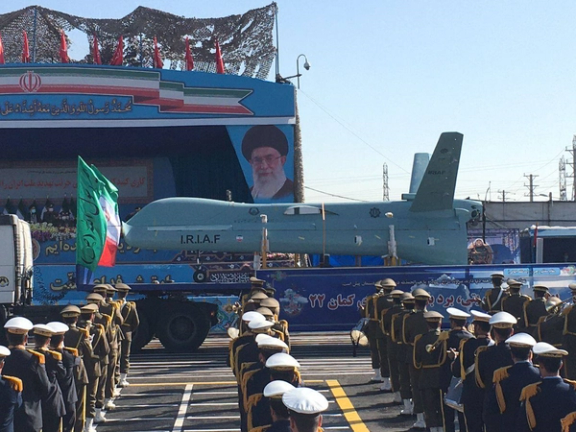
Iran showcased some of its latest drones Monday on Army Day, including the "strategic multi-functional combat drone" Kaman-22 and the single-engine multirole tactical drone Ababil-5.

Iran showcased some of its latest drones Monday on Army Day, including the "strategic multi-functional combat drone" Kaman-22 and the single-engine multirole tactical drone Ababil-5.
Kaman-22, unveiled on February 24, 2021, was displayed at the Army Day parade in Tehran. The unmanned combat aerial vehicle is said have a range of around 3,000km (1,900 miles) and carry a 300kg load, flying up to an altitude of 8km with a flight duration of over 24 hours. Ababil-5 is the newest variant of the HESA Ababil family of drones, now equipped with four to six Almas (meaning ‘diamond’) missiles and an aerodynamic body design.
The US and Israel pioneered the use of drones in the Middle East, although China has now become a major supplier, selling to Egypt, Iraq, Saudi Arabia, and the United Arab Emirates. Iran and Turkey have developed indigenous production.
As well as 50 models of drones, tanks and other items, Army Day parade featured radar and missile systems, armored units, helicopters, fighters, air-defense systems, and naval equipment. During the parade, President Ebrahim Raisi warned Israel that Iran would strike back in response to "the slightest move against our nation.”
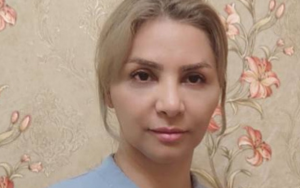
Two Iranian Christian converts, one in capital Tehran and the other in northern city of Rasht, have begun jail sentences.
Sakineh (Mehri) Behjati was transferred to Lakan Prison in Rasht Saturday after being convicted of “acting against national security” after attending home-based religious meetings and “promoting Zionist Christianity.”
Article 18 website, a London-based organization that says it promotes religious freedom in Iran and operates “under a number of Iranian churches in Europe,” claimed that another Christian convert, identified as 51-year-old Fariba Dalir, began serving a two-year prison sentence in Tehran’s Evin prison Saturday, after being charged with acting against national security through establishing and leading what Article 18 called “an Evangelical Christian church.”
While Iran persecutes followers of the Baja’i religious community and rejects esoteric philosophies and cults, the constitution recognizes Christianity, Zoroastrianism and Judaism – whose members have official representatives in parliament. However, churches that are allowed to operate are ethnic Christian congregations, such as Armenians and Assyrians.
These established churches are discouraged from accepting new members, and there is official suspicion of evangelical, millenarianist Protestant sects that carry out services in Persian. Renouncing Islam is forbidden by Sharia and the punishment could be death, although the government in Iran pursues lesser punishments.
The United Nations Special Rapporteur on the Situation of Human Rights in Iran, Javaid Rehman, said in February that at least 53 Christian converts were arrested in Iran in 2021.
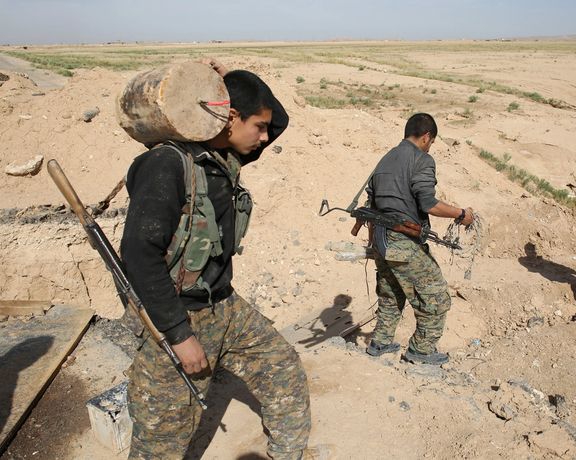
Turkey attacked Kurdish militant targets in northern Iraq in an air and land operation that targeted camps and ammunition stores, Turkey's defense ministry said on Monday.
The military action was part of a long-running Turkish campaign in Iraq and Syria against militants of the Kurdistan Workers Party (PKK) and the Syrian Kurdish YPG militia, both regarded as terrorist groups by Ankara.
Alongside the air operation, commandos and special forces also participated, both by land and air.
"Our operation is continuing successfully as planned," the state-owned Anadolu news agency quoted Defense Minister Hulusi Akar as saying. "The targets identified in the first phase have been captured."
Artillery also fired on militant targets in the military action, it said. No information on casualties was given.
The action, called "Operation Claw Lock", aimed to "prevent terror attacks" and ensure border security following an assessment that the PKK was planning a large-scale attack, the ministry added.
Turkey regularly launches air strikes into northern Iraq, a region into which it has repeatedly sent commandos, to support its offensives.
The PKK took up arms against the Turkish state in 1984. More than 40,000 people have been killed in the conflict, which in the past was mainly focused in southeast Turkey.
Iran also has armed Kurdish opposition in Iraq, although they separate from the PKK, which mainly operated Turkey and Iraq.
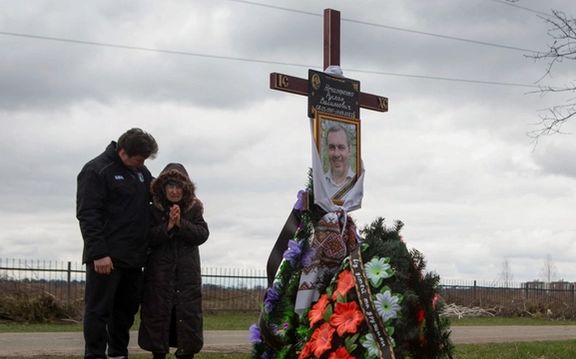
Pro-Russia views about developments in Ukraine appear to be changing in the Iranian media landscape as the Russian invasion drags on with much brutality.
Until last week, Iranian media with very few exceptions across the country's political spectrum echoed the party line about developments in Ukraine, in a probably concerted way based on orders from the Culture Ministry and the Supreme Council of National Security.
This policy highlighted Russian “victories”, promoted Moscow’s propaganda about NATO’s role in the conflict and omitted the word “invasion”.
Over the weekend, two interviews, one with Ukraine's ambassador in Tehran in Asia newspaper, and an interview with a member of Ukrainian Parliament in Etemad Online supported the Ukraine in the conflict while other media outlets, particularly Khamenei-controlled state television continued the usual official rhetoric about Russia trying to purge Ukraine of Nazis and preventing the expansion of NATO.
The state television's coverage of Ukrainian developments has been most annoying for viewers as it constantly portrayed the war as Ukrainians fighting Ukrainians, while the viewers have access to international TV stations which reflect the truth in a variety of different shades.
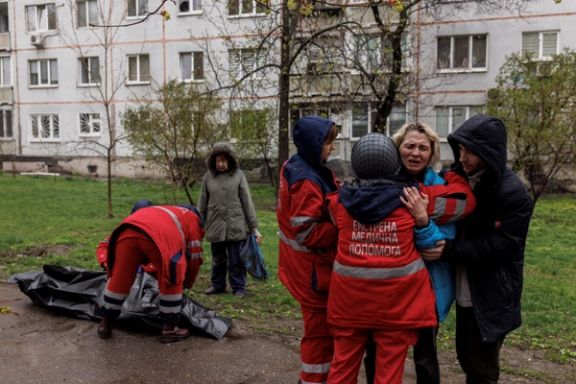
In the interview with Asia, Ukraine's ambassador to Tehran Serhii Burdyliak said that Iran has not helped Ukraine in any way while nearly the rest of the world including Central Asian states have sent financial aid. Some Iranians on social media criticized the ambassador for the remark and lashed out at Ukraine for never saying anything about US sanctions on Iran.
The ambassador further attacked the Iranian government over its stance on the Russian invasion and challenged it to send oil to Ukraine. Both Supreme Leader Ali Khamenei and President Ebrahim Raisi expressed support for Moscow at the start of the conflict in Ukraine.
Meanwhile, reformist Etemad Online quoted a Ukrainian lawmaker as having said that Ukraine will inevitably win the war. The lawmaker added: "We believe that the situation will improve if the Iranian government supports Ukraine and changes its rhetoric about the war in Ukraine."
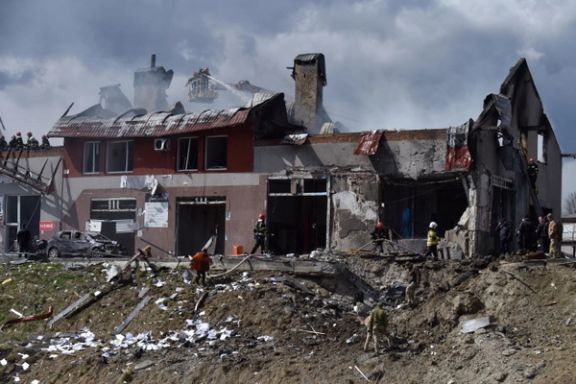
The lawmaker, identified only as “Andrey”, said he did not know whether any Iranians are fighting on the Ukrainian side, while adding "it was quite possible." He probably was countering rumors about Iranians helping Russia in the war against Ukraine.
The Iran Diplomacy website which is close to the Iranian Foreign Ministry observed in an analysis published on April 16 that opposing views in Iran regarding the war in Ukraine are divided in a diagonally opposite way.
"Although there are opposing views on the matter, it seems that part of the Iranian society which supports Russia in this conflict is a minority," the Iran Diplomacy maintained. The website added that Iranians have traditionally maintained opposing views on developments involving Russia for complicated historic reasons, but the differences between various attitudes about Russia during the current conflict has created a sharper bipolar environment in Iran, which is evident in media reports.
The bipolar situation in the media appears to have spread to Iranian society in general, the article argued. One group supports the idea of Russia being a reliable partner for Iran and another group whose characteristic is a profound distrust of Russia which is rooted in Iran's modern history.
The article further argued that some Iranians seriously believe that alliance with Russia under the Islamic Republic has prevented Iran's development while also keeping it apart from western countries.
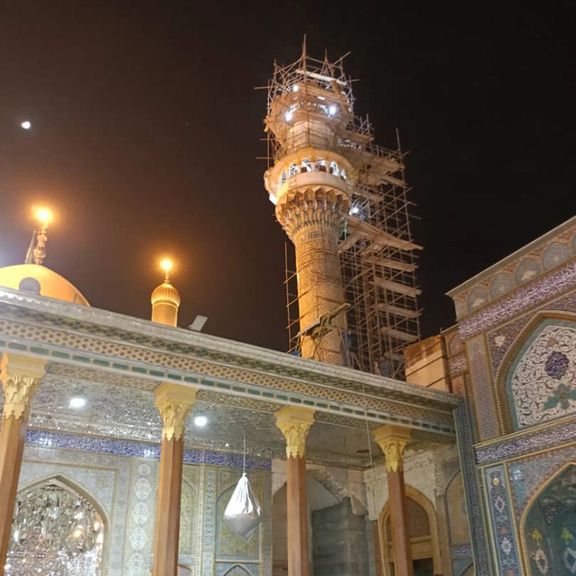
As most Iranians are struggling with dire economic conditions, the aid collected for the reconstruction of Shiite shrines in Iraq and elsewhere has increased.
A member of Iran’s headquarters for the development and renovation of the graves of Shiite figures in Iraq said on Sunday that the amount of donations for projects in the previous Iranian year -- which ended on March 20 – was 30 percent more than a year ago.
Yousef Afzali said donations for the current Iranian year are expected to reach 13 trillion rials, or approximately over $52 million.
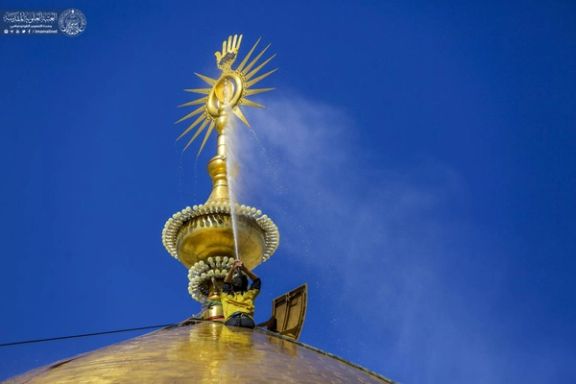
He said in addition to the development of the shrines, other projects have been planned for the reconstruction and development of the tombs of several great religious and national figures buried in Iraq, including Salman the Persian -- a companion of the Islamic prophet Muhammad and the first Persian who accepted Islam – and Rais Ali Delvari -- an Iranian independence fighter and anti-British colonial era activist.
The headquarters, which is affiliated with the Quds (Qods) force of Iran’s Revolutionary Guard, had earlier announced that more than 150 reconstruction projects for Shiite religious sites in Iraq and Syria are being funded by the Islamic Republic and will continue for the next 20 years.

Social media users have launched a twitter campaign in support of Iranian political prisoner Soheila Hijab who has embarked on a hunger strike.
According to some social media accounts which shared the hashtag #SoheilaHungerStrike, Sunday night, the lawyer and human rights activist has been on another hunger strike for days to demand her basic rights as a political prisoner.
“I see no choice but to begin another hunger strike. The officials refuse to give me my furlough despite medical advice. I have lost the use of some of my organs in previous strikes, but see no other choice”, she was quoted as saying in a letter.
Suffering from Covid late in February, the constitutional monarchist was temporarily transferred to a critical care unit (CCU) at a Kermanshah hospital following cardiac arrest after days of neglect in the prison.
Hejab was sentenced to 18 years in July 2020 for "propaganda against the regime", "forming a women's rights group" and "calling for a referendum to change the Constitution", by the notorious judge Mohammad Moghiseh.
She was first arrested in Shiraz in January 2018. Hejab who hails from a Kurdish family from Kermanshah was pardoned and freed. She was violently arrested again in June 2019 by IRGC intelligence, taken to Evin prison, and later released on a large bail.
In May 2020 she was arrested again by Revolutionary Guards' Intelligence Organization and was taken to Qarchak Prison for women in the south of the capital. She was then transferred to Kermansah prison in early January.